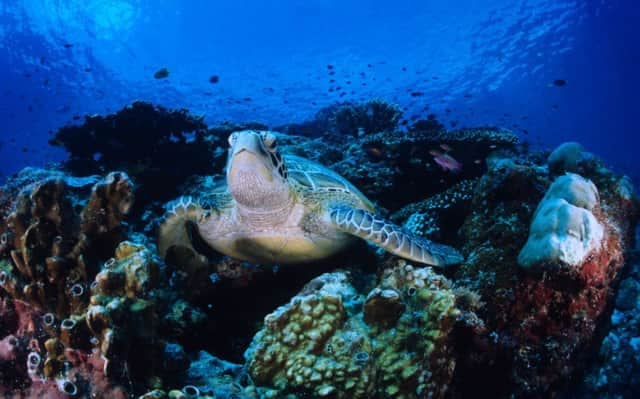Warning over species extinctions in world's unique nature hotspots


The warning comes in a study by the UK’s University of East Anglia (UEA), James Cook University in Australia and international environment charity WWF.
The findings show wildlife in the Amazon, Galapagos islands, southern Africa and south-west Australia will be among the worst hit if temperature rise exceeds the 2C safety threshold set out by experts.
Advertisement
Hide AdAdvertisement
Hide AdAnalysis suggests a projected mean global temperature rise of 4.5C would render these areas inhospitable for many of the plants and animals that currently live there.
This could result in local extinction of 90 per cent of amphibians, 86 per cent of birds and 80 per cent of mammals in the Miombo woodlands in southern Africa.
The Amazon could lose 69 per cent of its plants, while 60 per cent of all species could vanish from Madagascar.
The research also looks at the effects of increasingly erratic weather patterns associated with climate change, which could see less rainfall in the Mediterranean, Madagascar and parts of Argentina.
This would result in water shortages for African elephants, which need to drink up to 300 litres every day.
At the same time 96 per cent of the breeding grounds of Sundarbans tigers could end up underwater as a result of sea-level rise.
The findings prove keeping worldwide temperature rise as low as possible is the best way to protect against species loss, according to academics.
UEA’s Professor Rachel Warren said: “Our research quantifies the benefits of limiting global warming to 2C for species in 35 of the world’s most wildlife-rich areas.
Advertisement
Hide AdAdvertisement
Hide Ad“We studied 80,000 species of plants, mammals, birds, reptiles and amphibians and found that 50 per cent of species could be lost from these areas without climate policy.
“However, if global warming is limited to 2C above pre-industrial levels, this could be reduced to 25 per cent. Limiting warming to within 1.5C was not explored, but would be expected to protect even more wildlife.”
Conservationists say the latest research is worrying but there is still time to limit climate change by slashing greenhouse gas emissions.
And they believe that Scots can do their bit to help by bringing in tough new climate change legislation.
“Within our children’s lifetime places like the Amazon and Galapagos Islands could become unrecognisable, with half the species that live there wiped out by human-caused climate change,” said Dr Sam Gardner, acting director of WWF Scotland.
“Scotland has an important role to play in helping restore our fragile environment and wildlife, that’s why we’re calling on the Scottish Government to ensure that the forthcoming Climate Change Bill ends our contribution to climate change in a generation.
“This commitment will match that of other nations in the vanguard of climate leadership and help to build the momentum we need if we are to prevent the worst impact of climate change on our most precious species.”
WWF’s renowned Earth Hour event is being staged across the globe this weekend.